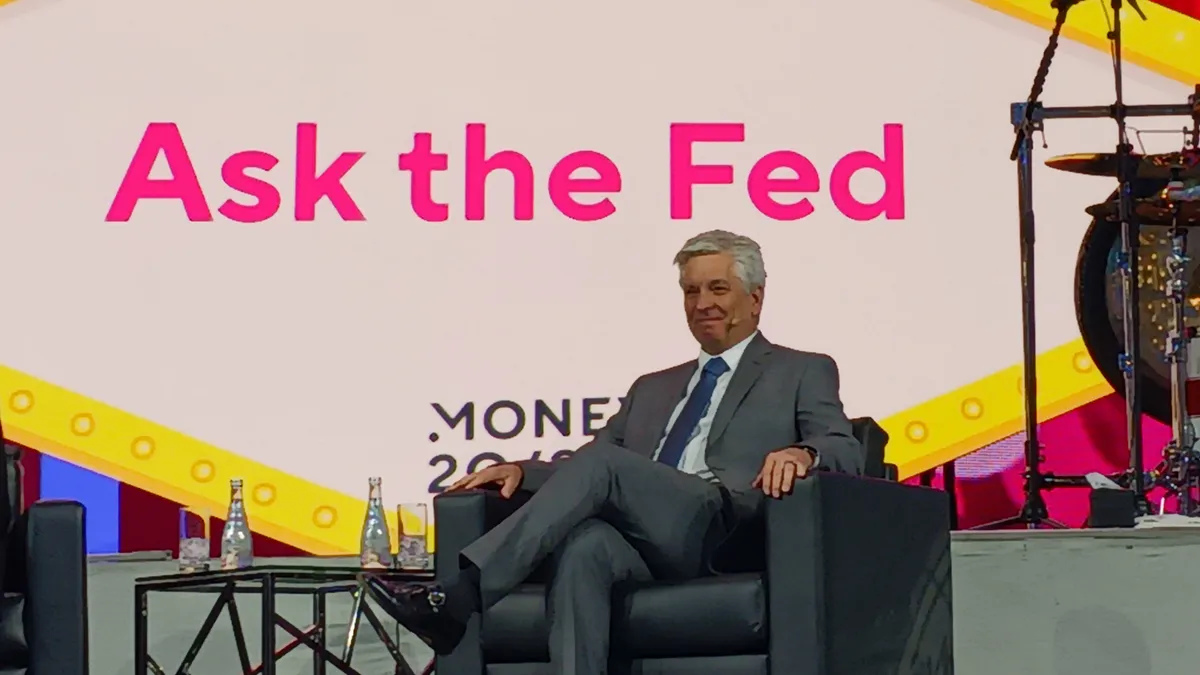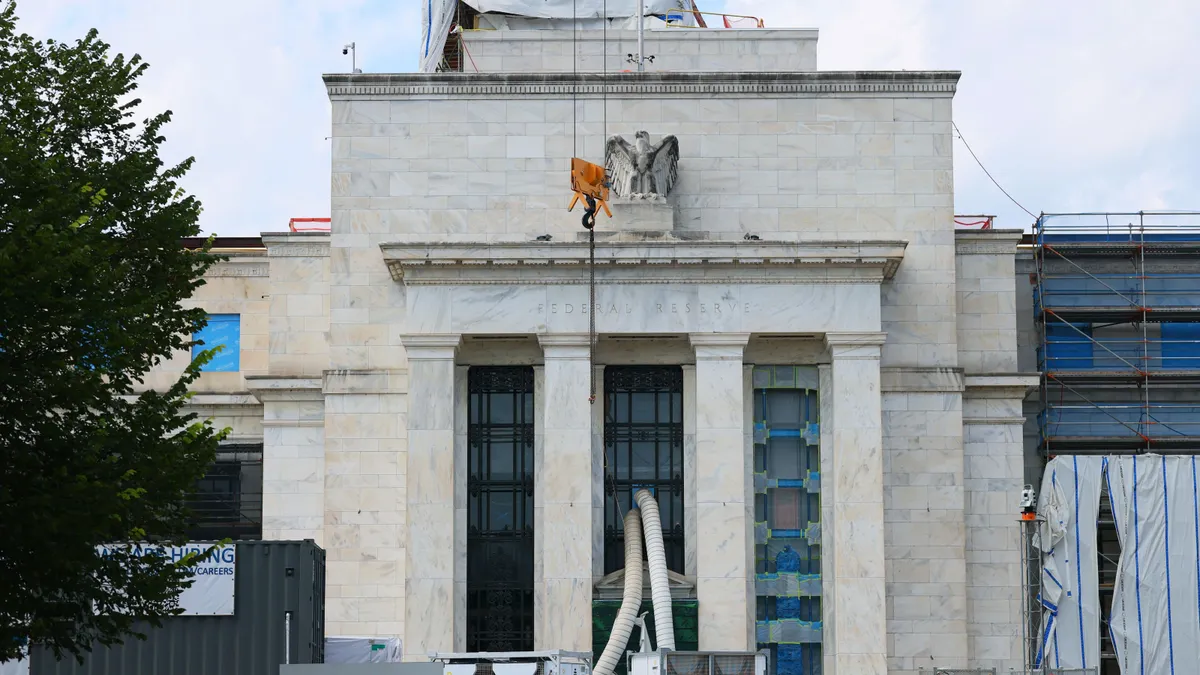The Federal Reserve has a critical role to play in setting standards for the rapidly evolving world of payments, Fed Governor Christopher Waller emphasized in a speech last week.
In speaking to the International Organization for Standardization’s committee for financial services Friday, Waller laid out the Fed’s historical role in helping the industry set standards to smooth the flow of payments, ultimately to the benefit of the economy. He also underscored that the fast clip of digital changes today make that role all the more important.
“As payments technology advances at a rapid pace, technical standards must also evolve,” Waller said at the event in Minneapolis. “And they must do so in a way that supports innovation while promoting safety, efficiency, and interoperability among a growing number of payments products and technologies,” according to the text of his remarks.
The Fed acts as an impartial “convenor” for such conversations on standards related to payments, as well as an “system operator” with insights to impart in setting those standards, he said.
His comments come as the payments industry adapts to a proliferation of digital tools and rails that don’t necessarily communicate with each other, or otherwise interact so poorly as to create inefficiencies.
Advent of real-time payments
One important area where there is currently a lack of interoperability is with respect to U.S. real-time payments. The Fed launched a system known as FedNow last July, following after The Clearing House’s start of its RTP network in 2017. While Waller didn’t address that issue, U.S. real-time payments leaders have recently discussed it publicly.
At Nacha’s Smarter Faster Payments conference this month, Fed and The Clearing House leaders sparred over the extent to which FedNow and RTP interoperability is a priority. While both said it was a long-term goal, they seemed at odds over the urgency to reach that goal.
Bank, merchant and other professionals involved in creating real-time payments use cases have unscored the need for standards in this real-time realm.
Without such standards, it’s difficult to increase use of such payments networks, Waller noted. He stressed the importance of any payments system scaling through interoperability for the benefit of all using a network, and for an increase in commerce generated by it.
“While achieving goals like network scale and interoperability is a complex problem, technical standards are one part of the solution to support consistent communication among existing and emerging technologies,” he said. “To achieve network effects, standards must be widely adopted.”
“Developing consensus-based standards implies that all relevant participants are at the table and advocating for their interests, which is not a given, but is critical if standards are to be widely adopted,” he added.
Moving to the new ISO standard
In another standard-setting endeavor, the Fed has said it will adopt the ISO 20022 messaging standard for its Fedwire Funds Service by March 2025. That’s just one deadline for a staggered set of moves around the world to introduce the new ISO 20022 standard for payments internationally.
The standard will speed up payments, partly by laying the groundwork for real-time payments, and it will also make payments easier and safer, said Deloitte Consulting’s leader for global and U.S. payments, Zach Aron.
“It will enable payments to be processed faster, which means at the end of the day, the client of the financial institution gets their money faster,” Aron said in an interview last week. “Also, by enabling more data in that message, and more structured data, you're able to make some transactions easier.”
Waller had a similar perspective with regard to that standard’s impact on cross-border payments. The ISO 20022 standard is expected to “improve the speed of wholesale cross-border payments by reducing operational costs and promoting consistent communication across global platforms,” Waller said.
Because the new ISO standard also allows for more data to accompany the transaction, he expects it may also buttress anti-money laundering efforts and increase sharing of remittance information, he said.
“Advocating for an open and transparent standards development process, where participants adopt standards that are technically sound and supportive of business and public objectives, is one way the Federal Reserve can help to foster payment system safety and efficiency, as well as support responsible innovation at its present rapid clip,” Waller concluded.




















